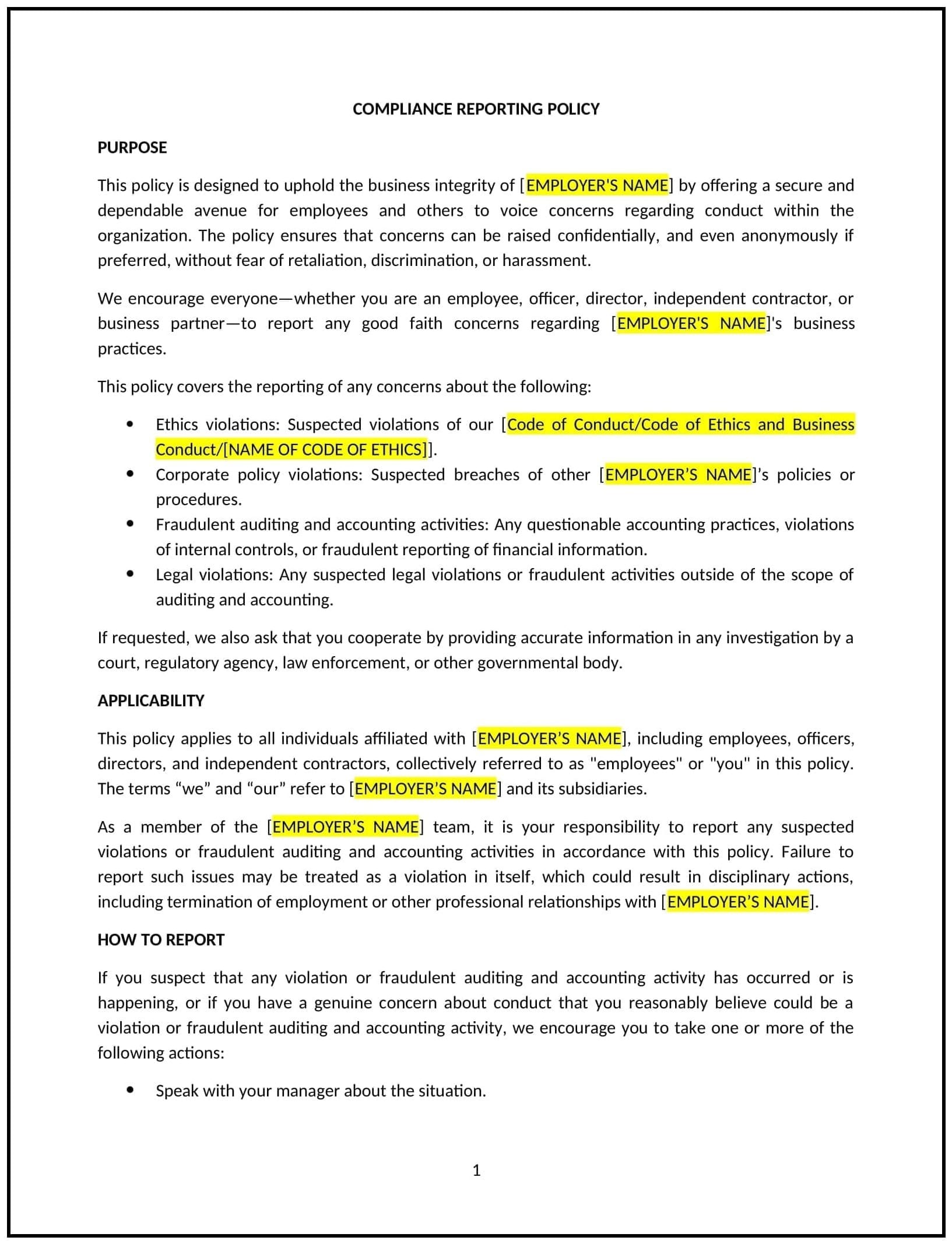Compliance reporting policy (Pennsylvania): Free template
Got contracts to review? While you're here for policies, let Cobrief make contract review effortless—start your free review now.

Customize this template for free
Compliance reporting policy (Pennsylvania)
This compliance reporting policy is designed to help businesses in Pennsylvania create a transparent process for employees to report potential violations of laws, regulations, or company policies. Whether addressing workplace misconduct, safety violations, or unethical behavior, this template provides clear guidelines for managing compliance concerns while aligning with Pennsylvania and federal requirements.
By using this template, businesses can foster accountability, minimize legal risks, and maintain a culture of integrity.
How to use this compliance reporting policy (Pennsylvania)
- Define reportable issues: Specify the types of concerns employees can report, such as fraud, harassment, safety violations, or regulatory non-compliance.
- Outline reporting procedures: Provide clear steps for employees to report concerns, including the use of hotlines, anonymous reporting tools, or designated contacts.
- Establish investigation protocols: Detail the process for investigating reported issues, ensuring confidentiality and fairness.
- Prohibit retaliation: Include assurances that employees who report concerns in good faith are protected from retaliation under Pennsylvania and federal laws.
- Reflect Pennsylvania-specific considerations: Tailor the policy to address state laws and industry-specific compliance requirements, such as environmental regulations or licensing standards.
Benefits of using a compliance reporting policy (Pennsylvania)
A well-structured compliance reporting policy supports transparency and accountability. Here's how it helps:
- Promotes ethical behavior: Encourages employees to report concerns, fostering a culture of integrity and responsibility.
- Reduces risks: Provides a structured process for identifying and addressing compliance issues, minimizing legal and reputational risks.
- Protects employees: Ensures employees feel safe reporting concerns without fear of retaliation.
- Enhances transparency: Establishes clear procedures for handling reports, increasing trust within the organization.
- Addresses local needs: Aligns with Pennsylvania’s legal and regulatory landscape, supporting state-specific compliance efforts.
Tips for using a compliance reporting policy (Pennsylvania)
- Communicate expectations: Share the policy with employees during onboarding and regularly reinforce its importance through training and communication.
- Train managers: Equip supervisors with the tools to handle compliance concerns appropriately and escalate them as needed.
- Provide anonymous reporting options: Offer employees secure and confidential methods to report concerns without fear of exposure.
- Monitor trends: Regularly review reports to identify patterns or recurring issues and address them proactively.
- Review periodically: Update the policy to reflect changes in Pennsylvania laws, federal regulations, or organizational needs.